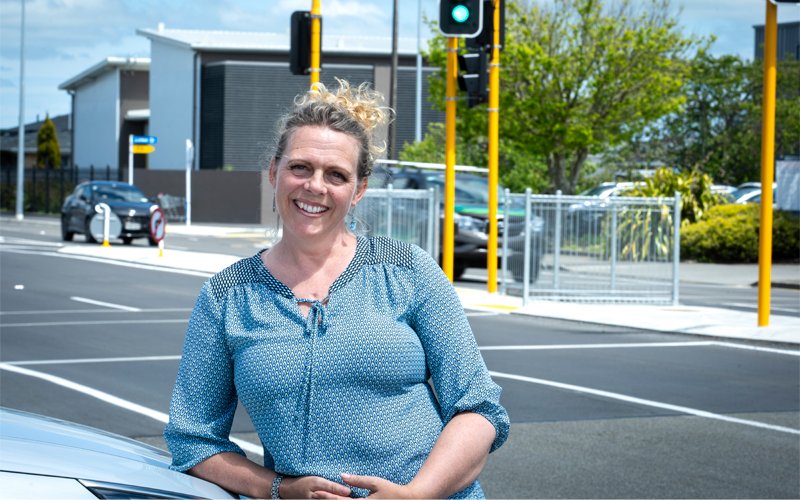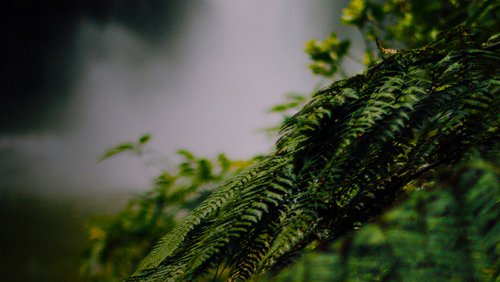16 Jan 2024
When Phillipa O’Shea was a child, her father worked on the oil rigs in the North Sea and at an early age, she decided she wanted to do the same. But an industry slump and a trip to Aotearoa led to an award-winning career in roading instead.
After gaining a degree in mechanical, maritime and offshore engineering to pursue her childhood dream of working on oil rigs, a slump in the oil industry prompted Phillipa O’Shea to return to university. She completed a PhD in civil engineering and worked in a range of roles in water and rail in the United Kingdom. Then she took a life-changing trip to Aotearoa and fell in love with the country.
“That was it. I knew I wanted to live here, and when I got back to England, Downer was on a recruitment drive, so I applied for a position and moved here soon after.”
Eighteen years later, Phillipa’s work at Downer has been acknowledged with the Engineering Leadership ENVI Award for her exceptional leadership and passionate and innovative work in sustainability and New Zealand’s roading industry.
“I was totally blown away,” she says of her win. “It’s the icing on the cake. It’s a recognition of the work I’ve done in stealth mode and behind the scenes. My role has always been an influencer, building relationships.”
While long interested in sustainability, it wasn’t until 2015 when, as a participant in the Downer Inspiring Leaders Programme, she established ways to calculate the carbon footprint of Downer’s contracts.
“The industry wasn’t really ready to accept that then, but the work demonstrated that we were able to report on it and that our systems were good enough to do it.”
She says getting people on board has been a long journey.

Photo: Brendan Lodge Photography
“It’s been about planting a seed here and there, watering and nurturing them.”
In her own time, Phillipa took the lead in setting up knowledge-sharing sessions within the organisation to get staff involved in discussions about sustainability.
“I’ve also been fortunate in my role to do an annual review of the contracts from an asset management maturity perspective, and you get to know who wants to make a difference and help grow those people.”
“There’s been some good little nuggets come out of these contract reviews. It triggers people’s curiosity. It’s a very good platform to help bring our communities together.”
Phillipa says as a small country, the biggest impact Aotearoa can make towards shaping a more sustainable world is by showing other countries what good looks like.
“By doing the right thing, we’re hopefully inspiring other countries to do the right thing, and of course, we will have an impact here – our waterways will be cleaner, our coastlines will be happier.”
Phillipa considers her work on pavement classification as her greatest achievement to date.
“Understanding what influences the performance of a road helps you understand what family group a section of road belongs to. Those that have the same geology type, rainfall volume, or the same rate of deterioration, can be modelled into the future with a deterioration rate that suits that family. The greater the data pool, the greater the accuracy in order to predict the likelihood of renewal for a particular road.”
This system won Phillipa the Innovation Award at the Roading Infrastructure Management Support (RIMS) Conference in 2018, and she has since joined the RIMS conference committee. She was also part of a carbon calculation task team for Waka Kotahi, developing a framework for assessing carbon emissions in predictive modelling to understand the whole-of-life carbon costs for a road renewal and its associated maintenance.
Phillipa says honesty and passion are key to strong leadership as is “having the courage to do the right thing, not necessarily the popular thing”.
“I believe if you’ve got a passion, anybody can be a leader because people are inspired by passion. And engineers have leadership in their DNA because we chose this profession to make things better.”
Phillipa’s leadership journey has not been without its road bumps.
“I was the only woman studying mechanical engineering at my university. The industry has definitely changed, but back when I first started, there were still a lot of old boys’ clubs.”
“I think as a woman in engineering, there are always challenges.”
She says the skills women bring into engineering, which were once seen as “soft skills” are key for successful team collaboration.
“Many women have naturally high emotional intelligence and are resilient from tackling challenges given to us in life. I’ve really seen an increase in the value our industry puts on these talents.”
Phillipa hopes her legacy will be that she has inspired people to grow and learn.
“It’s not really about my own individual achievements, but to grow others so they go on to inspire the next generation and the next, like a domino effect. That would be a lasting legacy.”
This article was first published in the January 2024 issue of EG magazine.




